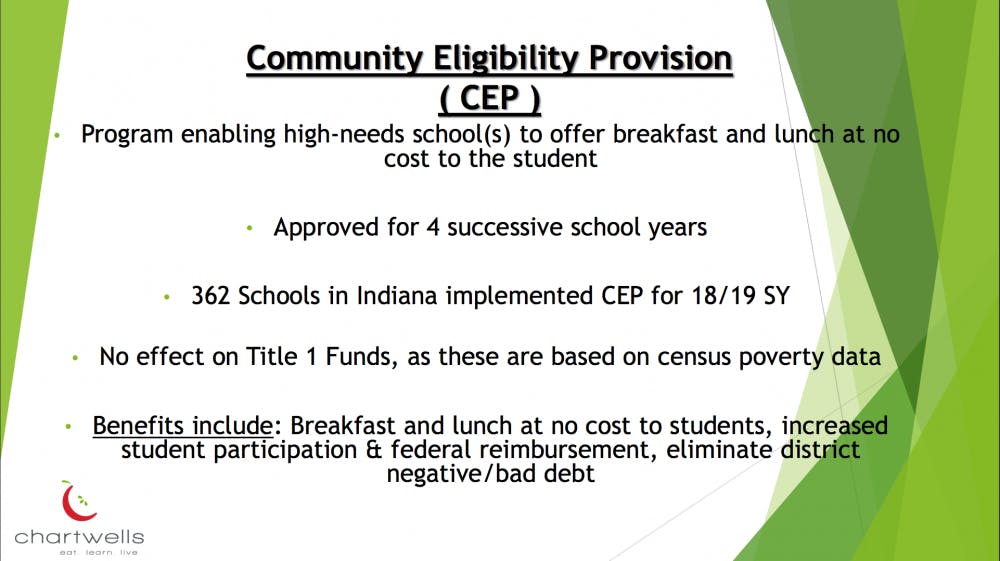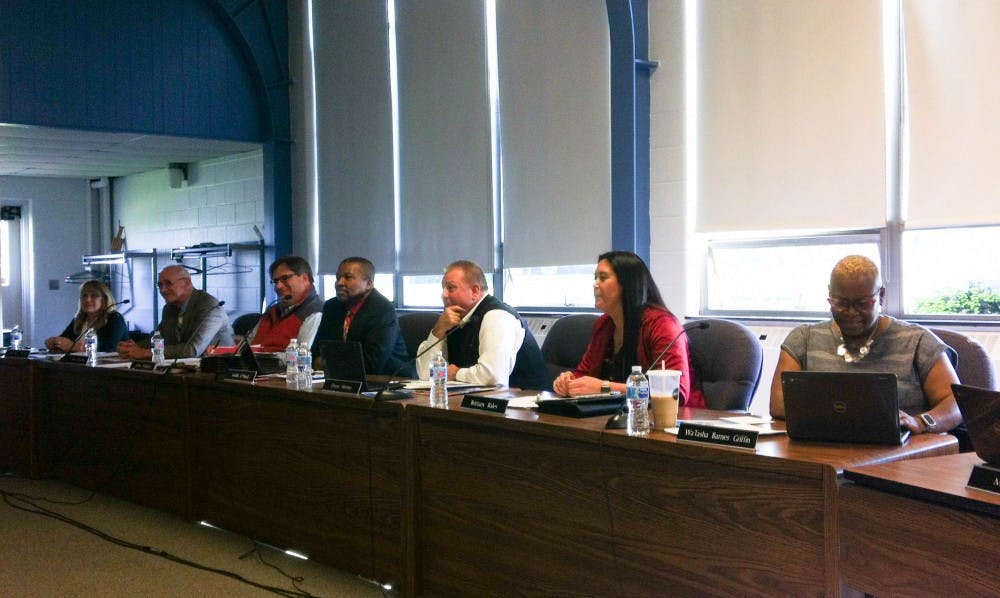According to MCS' website, in the 2018-19 academic year, the breakfast and lunch prices for students were as follows:
- Elementary Student Breakfast - Free
- Secondary Student Breakfast - $1.75
- Adult Breakfast - $2.40
- Elementary Student Lunch - $2.80
- Secondary Student Lunch - $2.95
- Adult Lunch-$3.90
- Extra Milk- $.50
With the implementation of CEP in the 2019-20 academic year, elementary and secondary students will be offered breakfast and lunch at no cost. There will be no change to rates/prices for adult students.
Editor's Note: This story is part of The Partnership Project, a series of content written in an effort by The Daily News to follow the formal collaboration of Ball State University and Muncie Community Schools. Read more in this series here.
Among the presentations, updates, approvals and discussions at Tuesday’s Board meeting were the approval of a proposed free meals program and a discussion regarding school security during election day voting.
The Muncie Community Schools Board of Trustees approved the renewal with Chartwells to operate food service management alongside a proposed plan to provide a free meal for students for the 2019-20 academic year at the meeting.
The Community Eligibility Provision (CEP) program allows for all students to eat their first meal, both breakfast and lunch, for free said Paul Kendall, regional director of Chartwells School Dining Services.
After watching the direct certification (DC) number of MCS with Stephen Edwards, interim superintendent administrator assistance, for about a year and half, Kendall said “we’ve met a threshold which it makes it advantageous financially to be able to do it and it’s not a cost liability.”
“We recommend that we move forward with that we think it’s a big win for the community and also for our students,” Kendall said.
He added students will not have to fill out free and reduced applications for meals which will “reduce some paperwork burden.”
According to the a slide about the CEP program, the school district could “eliminate district negative/bad debt.”
Once qualified to run the program, they will lock in the DC rate for four consecutive years and after which they will revisit the program to evaluate moving forward. If for some reason the program fails, the district “could opt out at the end of the next school year and go back to traditional free and reduced applications,” Kendall said.
“I think the risk is really minimal,” he said. “We’re working with several districts across the state to continue to be able to pursue that and the time is right.”
Kendall said moving breakfast in the classroom, is statistically shown to increase test scores and reduce health-related issues and nurse visits. After studying breakfast programs across the state he said consumption inside the cafeteria gets about 30 - 35% participation, but moving it in the classroom, could seeing participation go up 80% or more.
He said the program has “great wheels here in Muncie,” and Chartwells has had “a ton of success with it throughout the state.”
CEP is all funded with U.S. Department of Agriculture funds, the same as the current lunch program at MCS and hence requires no additional funding.
“The food service fund here in Muncie is doing well, we’re financially sound, we can continue to drive more options into program,” Kendall said. “So, it’s kind of a win win to be honest with you.”

According to a summary of the motion which passed unanimously at the meeting, the renewal of Chartwells as the food service vendor for MCS must also be approved by the Indiana Department of Education.
Toward the end of meeting, Board President Jim Williams said after meetings and discussion with teachers about election day voting at the schools, two issues struck him: disruption of school activity and school security.
Following this meeting Williams said he’s asked MCS administration to look at terminating the relationship the school has with the city and county in terms of elections and voting locations. If not possible, he said election days will be used as e-learning days instead.
“We want to be good citizens. But our first priority is the safety and security of our students our faculty and our staff,” Williams said. “We have a lot of folks going out of those buildings on those days that are not being vetted.”
He said communities have different voting locations and other options like community centers and churches with some communities having gone to regional voting centers.
“Now, I understand the board has not reached a final decision on that,” Williams said. “We’ve asked for a presentation, putting that out there in terms of the security — first and foremost the security of our students.”
Contact Rohith Rao with comments at rprao@bsu.edu or on Twitter @RaoReports.





